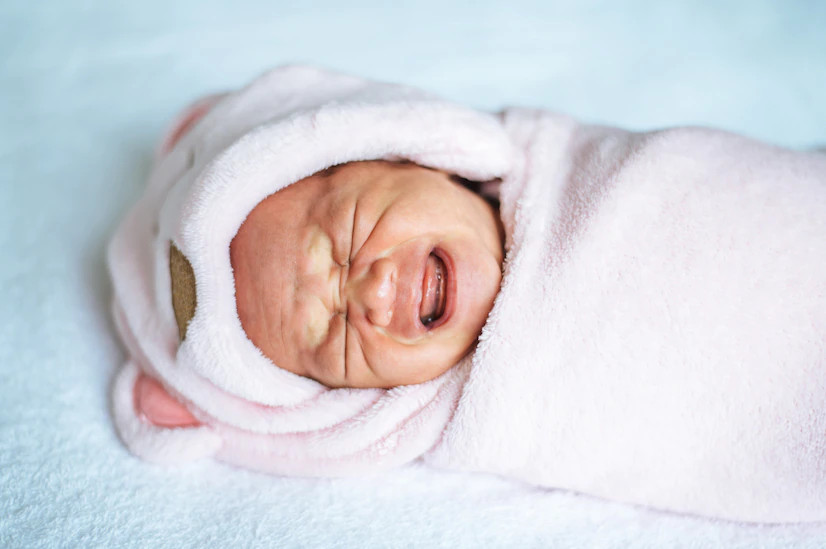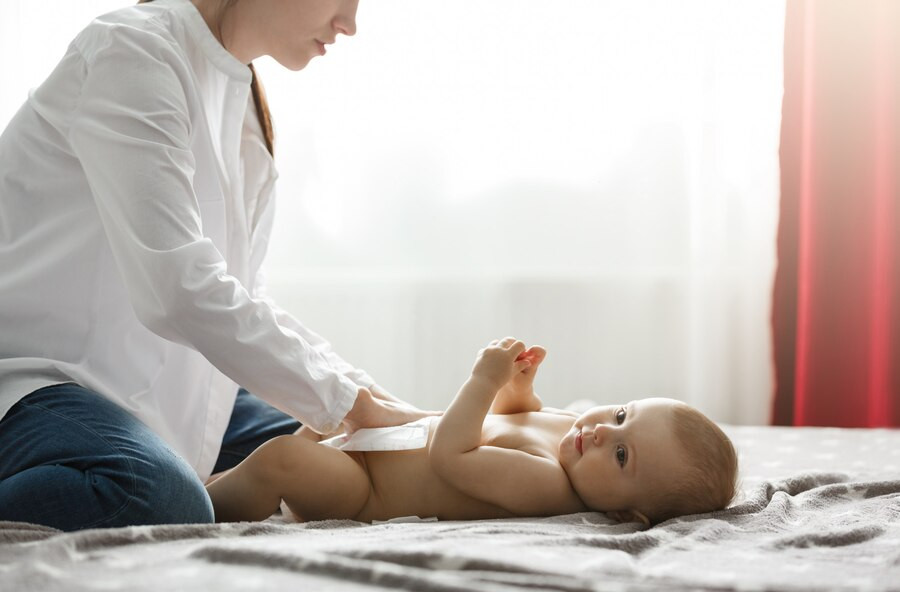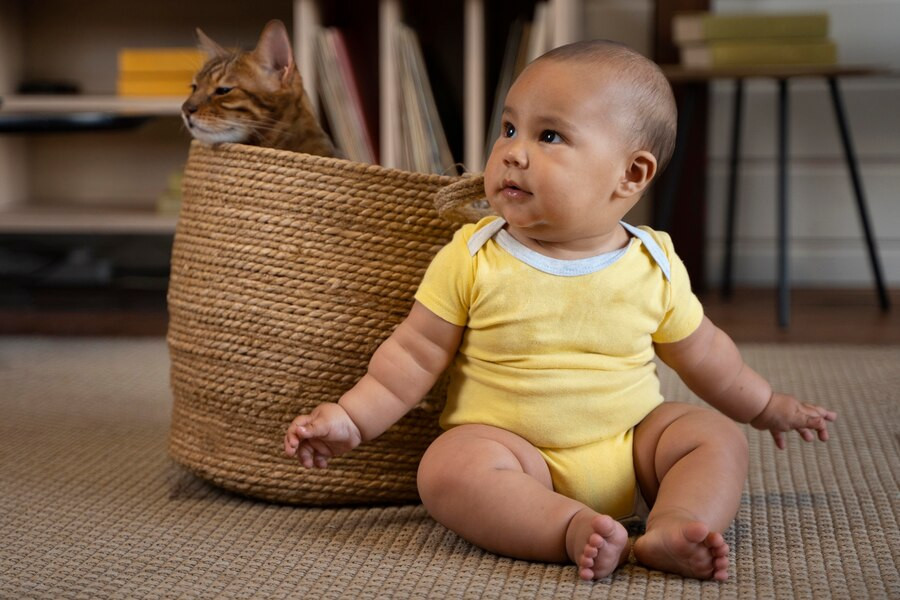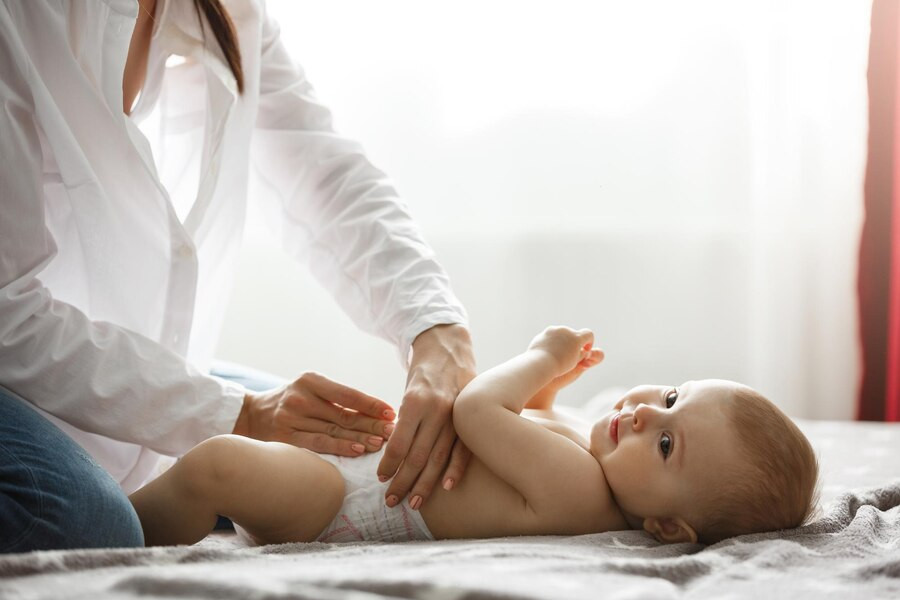A baby's lips can develop blisters due to allergies, infections, eczema, or incorrect breastfeeding techniques. The most common cause of blisters is improper attachment during breastfeeding, which leads to sucking blisters on the baby's lips.
Find out more about what a sucking blister is, its causes, and how to treat it.
What is sucking blister and its causes?
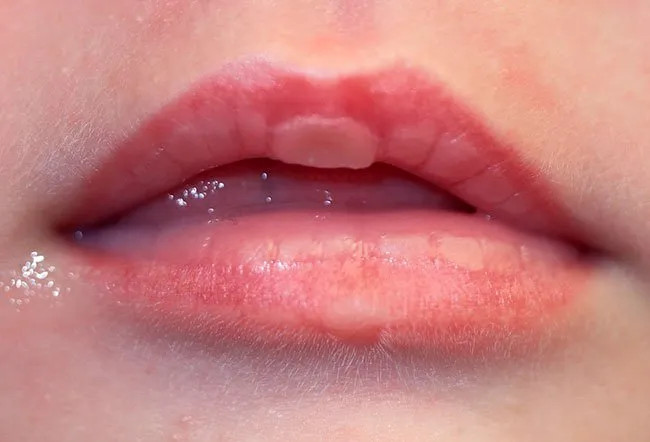
Credits: emedicine health
"Sucking blisters" are blisters that appear on babies' lips due to excessive sucking or biting of their fingers or other body parts. This can also happen if the baby's lips rub against the mother's breast incorrectly, leading to irritation and abrasions. Using the wrong type of pacifier or bottle can also cause these blisters to form.
Sucking blisters can form due to friction, sucking or biting. Though not painful, the area may appear red, swollen, or blistered.
Sucking blister due to lip tie
Sucking blisters may occur due to lip ties, a condition where the skin of the upper lip attaches to the gums, restricting the movement of the upper lip. This can make it challenging for the baby to latch onto the nipple correctly during breastfeeding, resulting in excessive friction on the lips and leading to sucking blisters.
Babies with lip ties may face challenges while breastfeeding, such as feeling hungry even after nursing, not receiving enough milk, or having difficulty latching on. If you suspect your baby has a lip tie or has blisters on their lips that don't improve, it's important to consult a doctor or lactation consultant immediately.
Read more: The Signs Of Baby's Mouth Attachment Are Right When Breastfeeding
How to Deal with Sucking Blisters
Blisters on a baby's lips may not cause pain, but you still need proper care to prevent infection and relieve irritation. Here are some things to suggest:
Maintain cleanliness
Make sure to keep the area of your baby's blistered lips clean. Clean gently using warm water and cotton wool after each feeding.
Pay attention to breastfeeding techniques
If the baby's lips are blistered due to improper latching, then improve the baby's breastfeeding technique. Ensure the baby is breastfeeding with the baby's mouth opened wider so that the baby's lips do not rub too much against the mother's breast.
Read more: How To Use Nipple Shield, Breastfeeding Tools
Apply lip moisturizer
You can apply lip balm that is safe and recommended by doctors for babies to help relieve irritation and speed up healing.
Consult a doctor
If your baby's lip blisters look severe, don't heal within a reasonable time, show signs of infection, or feel pain when breastfeeding, then you should take your baby to consult a doctor. The doctor can provide further evaluation and recommend appropriate treatment, including antibiotic ointment if necessary.
If you need medical advice or consultation, you can either visit a doctor or use the consultation features available in the Ai Care application by downloading the Ai Care application from the App Store or Play Store.
Looking for more information about pregnancy, breastfeeding, and the health of women and children? Click here!
- dr. Yuliana Inosensia
Rhona Lewis (2020). Blister on Baby Lip: Causes, Treatments, and More. Available from: https://www.healthline.com/health/baby/blister-on-baby-lip
WebMD (2023). What is a Lip Tie?. Available from: https://www.webmd.com/baby/what-is-a-lip-tie
Philadelphia Fight Community Health Centers. Newborn Care – Mouth. Available from: https://fight.org/programs-and-services/patient-education/newborn-care-mouth/
WebMD (2023). What to Do if Your Baby Has Blisters on Their Lips. Available from: https://www.webmd.com/baby/what-to-do-if-baby-has-blisters-on-lips
Sara Novak (2022). Tips for Breastfeeding a Newborn. Available from: https://www.whattoexpect.com/first-year/breastfeeding/things-to-know-about-breastfeeding-newborn/


